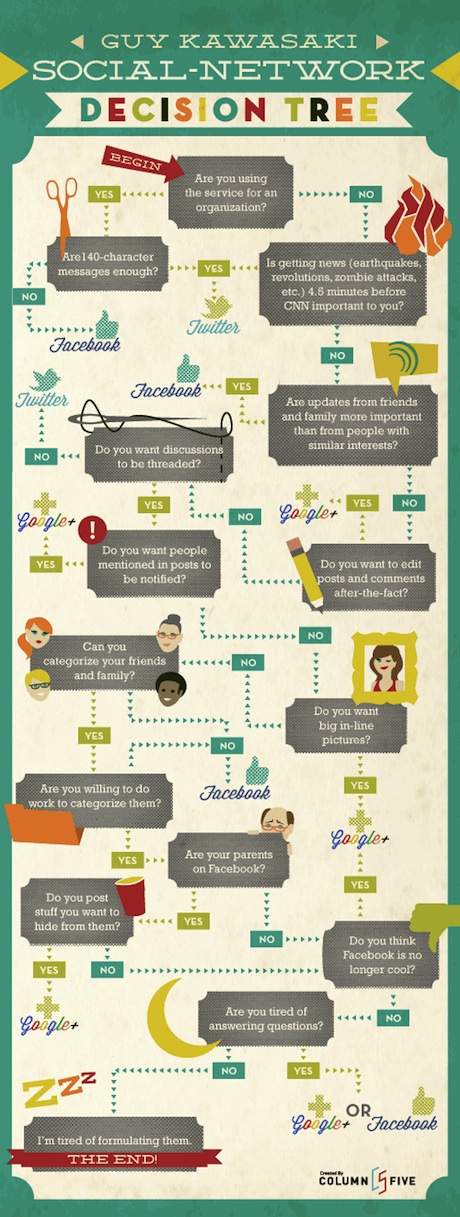
Recently, a lot of social media professionals (like myself) got up in arms over a Business Insider article, “We Got A Look Inside The 45-Day Planning Process That Goes Into Creating A Single Corporate Tweet.”
It’s fun to get our undies in a collective twist over articles like this. In this case, the reaction was, “The ‘creative‘ agencies are ruining social! They are agonizing over each clever little piece of content!”
Well, kind of….
The article, very likely got it wrong. In fact, a representative from the agency cited in the article refuted that “45 days” fact directly. I’m sure you can find an example of rigid process run amok that compares in ridiculousness, but do you really want to look that hard? The time to compose the Tweet likely refers more to a planning process that any brand should go through to plan out its content.
What the article does raise are the questions of who is handling online social content, what is its ultimate goal, and how it is being handled. As someone with a PR background, I’m likely to think about how we can respond quickly to our environment and events, and how we can set up processes to minimize roadblocks to execution, rather than focusing on clever “creative.” My journalism background informs the need to plan ahead, as stated above, so that content is an ongoing stream- with spikes of opportunistic content and realish-time engagement on top of it, of course. Those in the advertising realm may think more in terms of that creative and planning- and may be a reason why some of us were willing to believe such a ridiculous story (I’m sure folks more involved in the ad industry might have their own take, and are welcome to the comment section here).
So, what does this article bring up in terms of corporate social media programs? Here are my thoughts:
More and more, advertising and marketing have a hand in social: Coming from a public relations background, I always watched with interest the “who owns social?” arguments. Of course, we PR flacks always said “Public relations, of course!” but it generally depends on the goals for social media. It also depends on the skills needed. More and more, experience with paid media is necessary. Do PR agencies and consultants have that experience? They are scrambling to get there. Also, the influx of “content marketing” tilts the scale towards those disciplines used to getting out creative – that is probably ad agencies or the more traditional “digital” marketing shops. Again, PR companies are working to bring those skills on board, as the PR side can still argue that company messaging, engagement, and the ability to respond quickly to news and crises are their sweet spots. It continues to be interesting to see not only how agencies evolve, but how companies who have done social longer evolve the way they treat their social content programs.
Planning is good: The idea that it should take 45 days to write a Tweet is absurd, but the idea that content should be planned out like a publisher would do it, and that it should be plugged in to a larger communications strategy, is not. The latter is probably what was going on at the agency profiled in the Business Insider piece. That doesn’t mean some companies don’t deliberate too much, though…
Process is not our enemy; patience is our friend: There is a difference between process and patience. While the notion of a committee of 13 people taking 45 days to write a Tweet is highly unlikely to be true, there are roadblocks to expediency everywhere. The trick is to know which ones you can eliminate (make it clear who owns final approvals and publishing, gain the trust of executives to move and make decisions), and which ones you need to simply make more efficient (work closely with lawyers on compliance, make it easy for subject experts to make their make their contributions). Also, have patience; “real-time marketing’ is great when it is warranted, but to get back to what could have been the point of the BI article, advance planning, and sowing seeds for a longer, more fruitful program are arguably more important than knee-jerk responses and “newsjacking” that may be at best tangential to your primary messaging. Take that thinking and applying it back to which disciplines are making the content decisions, how, and where. There are no right answers, but we’ll always have fun picking apart the wrong ones (right?).
I’d like to thank Business Insider for getting all the discussions moving over the past week or two with this act of what may well have been dubious journalism.

[…] 6. 45 Days To Compose A Tweet? Silly, But… […]
[…] 6. 45 Days To Compose A Tweet? Silly, But… […]